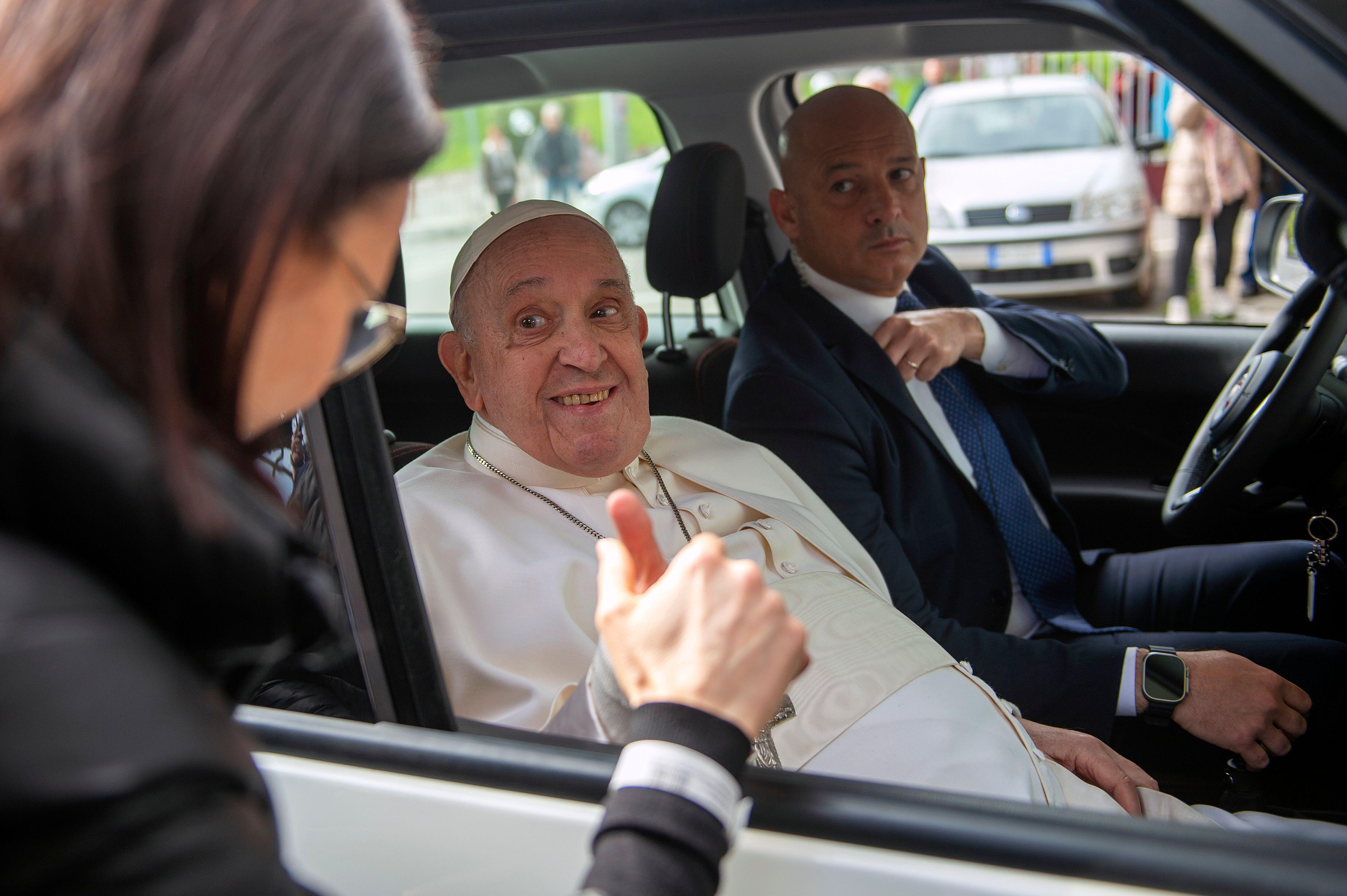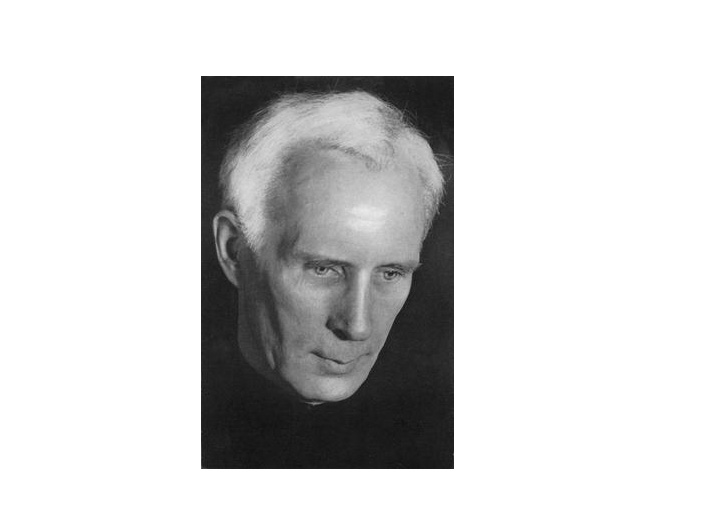French bishops have voted to support a cause for the beatification of Henri de Lubac, one of the greatest theologians of the twentieth century who influenced the Second Vatican Council and after that worked closely with the late Pope Benedict XVI.
De Lubac, who died in 1991 aged 95, was a leading figure in the ressourcement movement, rejuvenating theology by a return to the patristic sources. This focus led the Vatican to ban him from teaching in the 1950s, but later made him a leading expert at the Council. John Paul II made him a cardinal in 1983.
He had a long connection to Britain, having begun his novitiate studies at St Leonards-on-Sea in East Sussex before the First World War and after it pursuing further studies in Canterbury, Jersey and Hastings.
Fr Hans Zollner SJ, one of the Church’s leading anti-abuse experts, has stepped down from the Holy See’s child protection commission, saying he had become “increasingly concerned” with how the body is being run.
In a statement published on 29 March, Zollner, a trained psychologist and psychotherapist, said that shortcomings in “responsibility, compliance, accountability and transparency” in the running of the Pontifical Commission for the Protection of Minors meant he wished to “disassociate” from the body.
The president of the commission, Cardinal Sean O'Malley, said he was “surprised, disappointed and strongly disagree[d] with [Zollner’s] publicly-issued assertions challenging the commission’s effectiveness”.
In a statement on 28 March, Bishop José Guadalupe Torres of Ciudad Juárez, Mexico, expressed his condolences for the migrants who died in a fire “here in our city” on 27 March. He described it as “a sad reality that deeply challenges us all”.
At least 38 men were killed and 29 injured in the fire in a temporary reception centre for migrants. Bishop Eugenio Lira of Matamoros, Mexico, and Archbishop Gustavo García-Siller of San Antonio, Texas also “deeply regretted the deaths of the migrant brothers”.
All three bishops asked the authorities to clarify what happened and guarantee the safety of other migrants trying to cross into the US.
Guatemala’s bishops’ conference said that migrant reception centres like the site of the disaster in Ciudad Juárez “end up being detention centres, where human rights are violated”.
More than half of the dead were found to be Guatemalan. The men could not escape the blazing building where their requests for asylum in the US were being processed. The Guatemalan bishops condemned “the abandonment and inaction of the states involved in origin, transit and destination”.
They said Guatemalan officials were “co-responsible” for the tragedy, as they should be securing the rights of citizens “to remain in their country in dignified conditions”.
The Mexican Jesuits said that the death of the man alleged to have murdered two Jesuit priests “is a lamentable moment” rather than justice.
Forensic experts last month identified the body of José Noriel Portillo, who was wanted for the murder of Fr Javier Campos Morales and Fr Joaquín César Mora Salazar alongside two laymen in June last year.
Fr Luis Gerardo Moro Madrid, superior of the society’s Mexican province, said that Portillo’s death “does not represent an act of justice but of barbarism and the failure of institutions”.
He continued: “It is with sadness that we point out that the debt of justice still remains for the Sierra Tarahumara [where the priests died] and for so many corners of this country.”
The Catholic community in Moscow commemorated the centenary of the execution of Fr Konstantin Budkiewicz with a special Mass on 31 March, celebrated by the Latin Rite Archbishop of Moscow, Paolo Pezzi.
Prayers were said for the cause for the beatification of Fr Budkiewicz and other Catholics persecuted in 1922 and 1923, when the Leninist’s government’s persecution of the largely Polish Catholic community was at its height. Fr Budkiewicz was shot on 31 March 1923, Holy Saturday in the Latin Church’s calendar that year.
Police entered the church of St Nicholas in Talas, north-western Kyrgyzstan, on 26 March and fined two Slovak nuns for violating the country’s laws after they read during the Sunday Mass. Neither had preached, which foreign citizen can only do with special authorisation in the predominantly Muslim country.
Jesuit brother Damian Wojciechowski said that the church had lodged an appeal against the fines. “We trust that justice will take its course and the fines will be cancelled, since the Catholic Church in Kyrgyzstan does not proselytise in any way and is only present in the territory of the republic in accordance with current regulations,” he said.
Before reciting the Angelus last Sunday, after the Palm Sunday celebration in St Peter’s Square, Pope Francis gave his blessing to a peace caravan of some 25 vehicles that had left Italy for Ukraine to bring humanitarian aid.
He noted that this “is a sign of the closeness of the people of Italy to the battered people of Ukraine”, adding: “Let us unite ourselves to this gesture with our prayer, which will be more intense during the days of Holy Week.”
Associations including the Pope John XXIII Community, Pro Civitate Christiana, and Pax Christi helped to organise the caravan.
The Nineveh Council, representing Iraqi Catholic and Protestant churches in Mosul and the Nineveh Plain, has called for electoral reforms, urging the government to protect the representation of minority Christians in the local and national legislatures.
In a statement, the council warned that Christians may boycott the upcoming elections if their demands are ignored. Chaldean Archbishop Najib Mikhael Moussa of Mosul-Aqra and Syrian Catholic Archbishop Benedict Younan Mubarak Hano of Mosul were among the signatories.
Iraq’s major political parties have been accused of “hijacking” the seats allotted to Christian minorities. They “end up not really representing the legitimate demands and interests of the Iraqi Christian communities at a political level”, the council said.
The president of South Sudan, Salva Kiir, has appointed a member of his own party as defence minister, according to a decree read on state media last week. This breaches the terms of a peace deal which directed that the party of opposition leader Riek Machar would hold the position.
Kiir fired defence minister Angelina Teny, who is Machar’s wife, re-igniting a long-standing feud over power-sharing. He replaced her with Chol Thon Balok, a general loyal to his regime. Kiir and Machar signed a peace agreement in 2018 that ended five years of civil war, but implementation has been slow and intermittent fighting continues.
A Rwandan immigrant who set fire to Nantes cathedral in 2020 after being officially instructed to leave France has received a sentence of four years in prison from a local court.
Emmanuel Abayisenga, 42, took revenge in the cathedral where he was a volunteer custodian, destroying the main organ, a choir organ and a nineteenth-century painting. The damage was estimated at €40 million.
Abayisenga is also under investigation for the murder of Fr Olivier Maire, the French provincial of the Montfort Missionaries, who had offered to house him while waiting for his court appearance.
The cathedral is due to reopen in 2025. In Paris, a group of four Romanian immigrants received sentences of between one and three years for seven cases of robbing churches in 2022.
The Carthusian monks who have made the famous green and yellow Chartreuse liquors in France since 1605 have no plans to increase their output despite growing demand for their product. Officials have said their output could not be expanded sustainably because some of the 130 plants needed for the liquor’s production suffered from climate change.
With fewer monks, those who work at the distillery in Aiguenoire, north of Grenoble, are often exhausted and do not have enough time to pray, they added. Sending the bottles over long distances has also become more costly because the monastery only wants to use decarbonised means of transport.
The Organisation of African International Churches, comprising Church leaders from across the continent, has appealed to Nigerian politicians to avoid feuds in the wake of the country’s presidential election, and to work together for the good of the country.
“It is imperative that those in political authority should strive at all times to pursue and advance policies that promote the common good of all citizens irrespective of their doctrinal, political or tribal leanings,” the organisation said.
The Church leaders also condemned rising insecurity in Nigeria: “We decry the activities of terrorists and insurgents, kidnappers and bandits that appear to have taken the nation hostage.”
Jesuit Missions UK has opened a petition to the Indian government to clear the name of Fr Stan Swamy SJ, who died in prison in Jharkhand state in eastern India under a sentence for alleged involvement in violent protests in 2018.
Fr Swamy had spent decades campaigning for indigenous rights in Jharkhand. He died of Covid-19 in July 2021, after seven months in prison.
A US-based digital forensics firm has reported that he was the subject of a cyber campaign which planted false evidence on his computer – evidence subsequently used to convict him after the 2018 Bhima Koregaon protests. The petition in Jharkhand has received 10,000 signatures.



 Loading ...
Loading ...